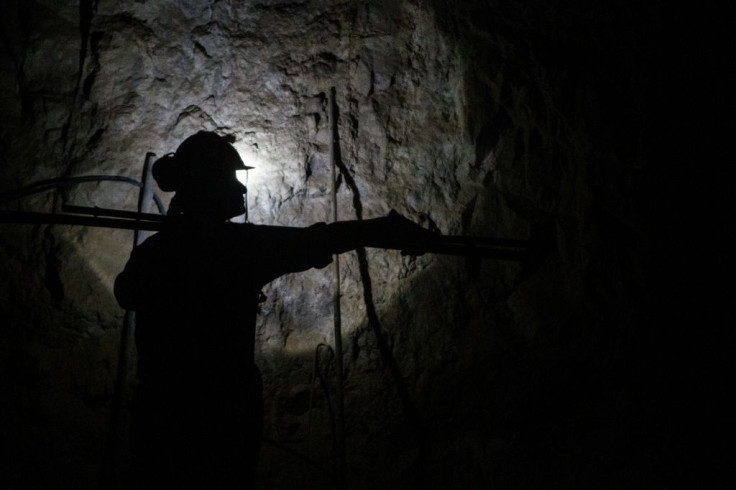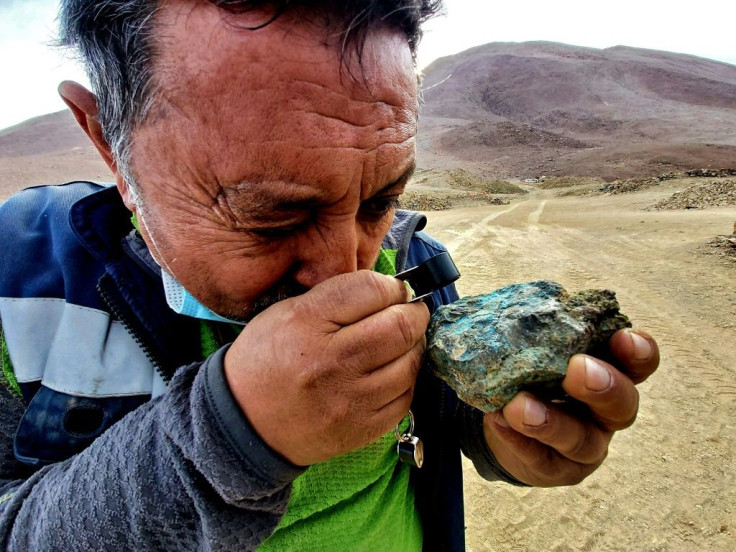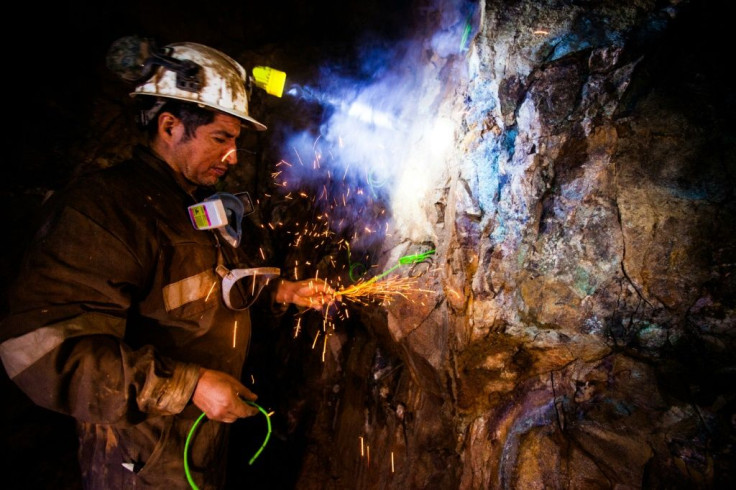Small-scale Chilean Miners Left Out Of Copper Price Bonanza
Hugo Moroso individually selects rocks he extracts from the small Kiara copper mine in the Vicuna Mackenna mountain range of northern Chile, home to the largest copper deposits in the world.
Chile is the world's top producer of copper, making up 28 percent of global output. The mineral accounts for 10-15 percent of the South American country's GDP, with much of it exported to China, the world's biggest consumer.
But while copper prices are booming at record levels of over $10,000 a ton, the same cannot be said for 70-year-old Moroso's earnings.
"My son doesn't want me to keep working in mining," said Moroso, whose back-breaking labor earns him just 500,000 pesos ($660) a month.

The Kiara mine is located 130 kilometers (80 miles) south of Antofagusta -- a paradise for copper mining giants like Australia's BHP, which owns the Escondida site, and Chile's state Codelco company that runs the Chuquicamata site.
Miners at those sites earn around two million pesos a month ($2,700), well above the national average.
Antofagusta -- 1,300 kilometers north of the capital Santiago -- is known as "the capital of world mining" and the source of 25-30 percent of Chile's exports.
Yet poverty in the city -- one of the country's most expensive -- increased from 5.1 percent in 2017 to 9.3 percent in 2020.

"In this city there are people that can live like in Europe and others that live in (makeshift) camps where there's no running water, there are outhouses, dirt roads, that's what makes you angry," said Felipe Berrios, a priest who has lived in the Chimba area of town for six years.
Chimba lies next to a rubbish dump among the city's arid hills and is home to 1,000 families living in wooden huts.
Many are immigrants from Colombia, Bolivia and Peru working menial jobs.
In this region "which provides 10 percent of the country's GDP but receives only two percent of investment, you don't see large roads, you don't see the best schools, you also don't see an improvement in hospital infrastructure," Ricardo Diaz, the governor elect, told AFP.

Small-time miners like Moroso pick through rocks to find the ones with the most copper to sell to the Enami national mining company.
Big mining companies use machines for this tiring work.
A year ago, a ton of rocks with 2.5 percent copper content fetched 43,000 pesos ($59); now that's soared to 109,000 pesos ($150) but Moroso's salary has barely budged in three decades.

"It's the only thing I know how to do," he told AFP.
Working conditions are tough. During the day the sun beats down in the windy desert, while at night temperatures drop dramatically.
One solace is that work is safer now than it was for the miners' fathers.
The workers have masks and a machine to cart out the rocks they break up with pickaxes.
Before, they had to lug wheelbarrows full of rocks up a slope while covering their noses with moistened socks to keep out the dust.
The copper price boom has at least created more work.
Enami has registered more than 1,400 small-scale miners and says that over 80 operations have been reactivated since 2020.
The Kiara mine reopened in August 2020 after three years of closure.
"It's a good business but you have to have the right people and look after those that work with you," said Leonel Alvarado, one of the owners of the Kiara mine, which sits at 2,400 meters (7,875 feet) above sea level.
Changes could be afoot in Chile's mining industry.
The lower house Chamber of Deputies has approved a bill pushed by left-wing parties -- due to be discussed in the Senate next -- that will increase taxes on the extraction of non-renewable natural resources, with the aim of investing that extra money in mining communities.
The commission that will rewrite Chile's dictatorship-era constitution is also planning changes to the exploitation of primary resources.
The government expects the current 40 percent sales tax -- a figure similar to other major mining countries such as Australia and Peru -- to increase to 70 percent.
"We agree that mining can contribute more to development in the country and in the communities where it is located, but (the bill) could have the opposite effect and make investment and production fall," mining undersecretary Edgar Blanco told AFP.
However, Cristina Dorador, a scientist who represents Antofagusta on the commission rewriting the constitution, believes that "it is time to rethink these economic extraction practices" as a development model -- taking into consideration the huge damage to the environment.
"People don't understand how a region that seems so rich could be at the same time so poor and unequal, and it's because extraction also causes inequality," Dorador told AFP.
© Copyright AFP 2024. All rights reserved.





















